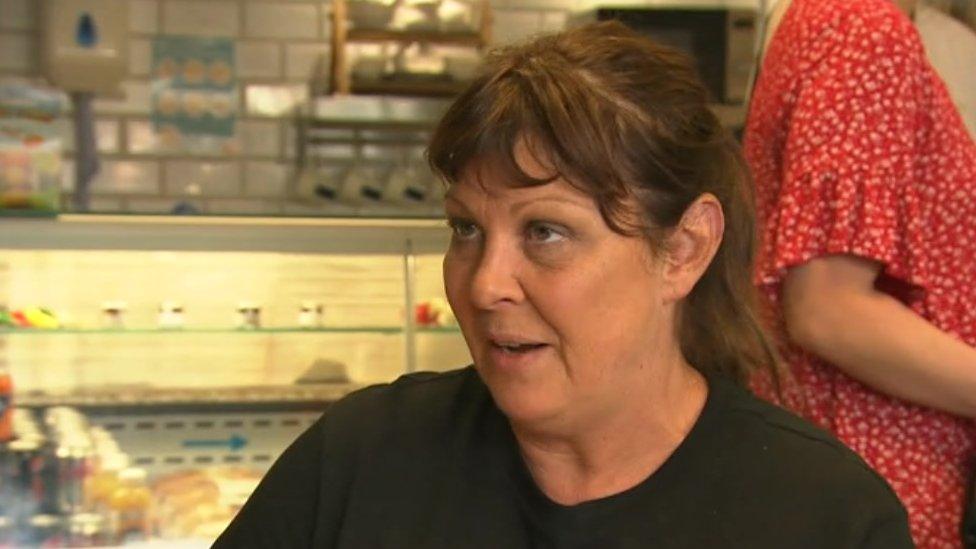Stafford butcher fears closure amid rising energy costs
- Published
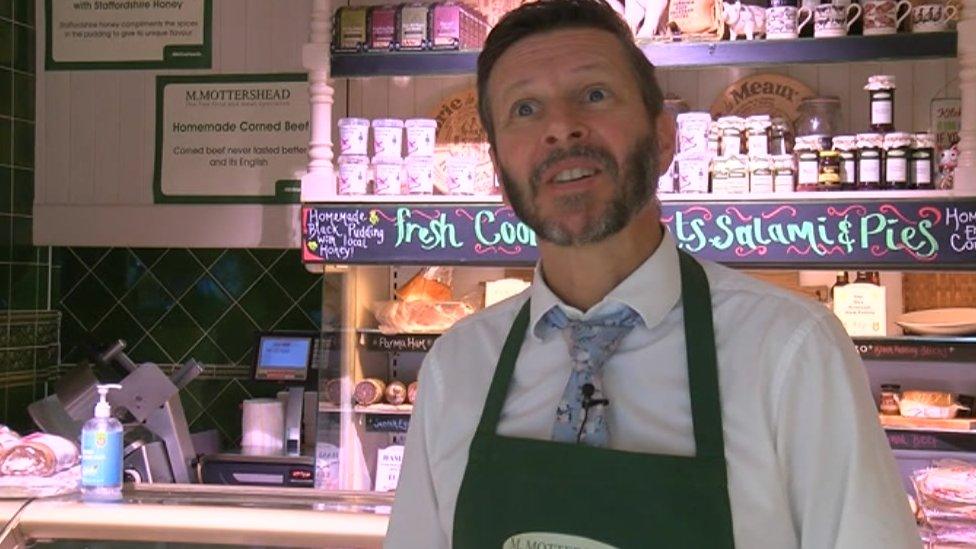
Martin Mottershead said the prospect of losing his business due to energy bills was "just sad"
A butcher said he could be forced to close his business due to rising energy costs.
Martin Mottershead has been paying £12,000 a year at his Stafford shop, but this will rise to £35,000 when his fixed price contract ends in 18 months.
Other small business owners in the town have called for greater government support.
The government said it had introduced a 50% business rates relief for eligible firms, among other measures.
However, Mr Mottershead said worries about the rising cost of energy "keeps you awake at night".
"How do you cope with that? You can't pass that on," he said.
He said he had told energy suppliers he would not be able to open his doors if bills rise to £35,000 a year.
"I have known a lot of my customers for over 35 years and to think that this could all end from something which is out of my control, like the electricity, is just sad."
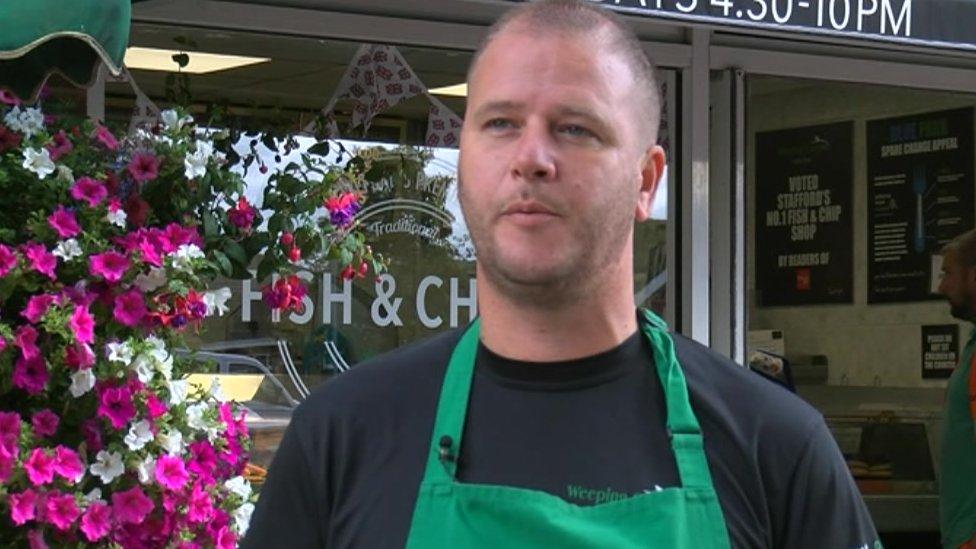
Fish and chip shop owner John Evans called for a drop in VAT
The Bank of England has said increases in energy bills will drive inflation even higher, after hitting 10.1% in July - the highest rate in 40 years.
Experts warned inflation could reach 18% next year.
John Evans, who runs a fish and chip shop in Stafford, said his costs were also leading to sleepless nights.
Cooking oil, potatoes and fish have all soared in price since Russia's invasion of Ukraine.
Mr Evans said his energy bill was also set to rise by £23,000 from June 2023 when his fixed deal ends.
He said small businesses did not have the borrowing power of larger firms to protect them, and called for a drop in VAT to help.
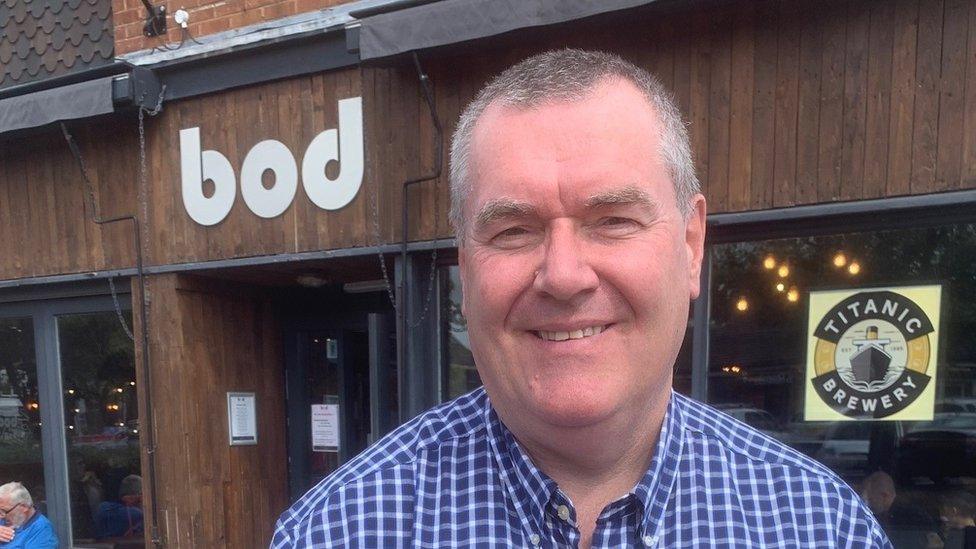
Andy Slee called for further cuts to business rates and beer duty
Andy Slee, director of Titanic Brewery, which owns the Bod Cafe Bar, echoed calls for help from government on key costs in a bid to keep "small businesses alive".
He suggested dropping beer duty, business rates and a cap on utilities to help the hospitality industry.
On Friday, a new energy price cap is expected to be announced by regulator Ofgem.
However, this only affects residential customers on variable tariffs - not businesses, which have borne the brunt of rising wholesale prices if not on fixed deals.
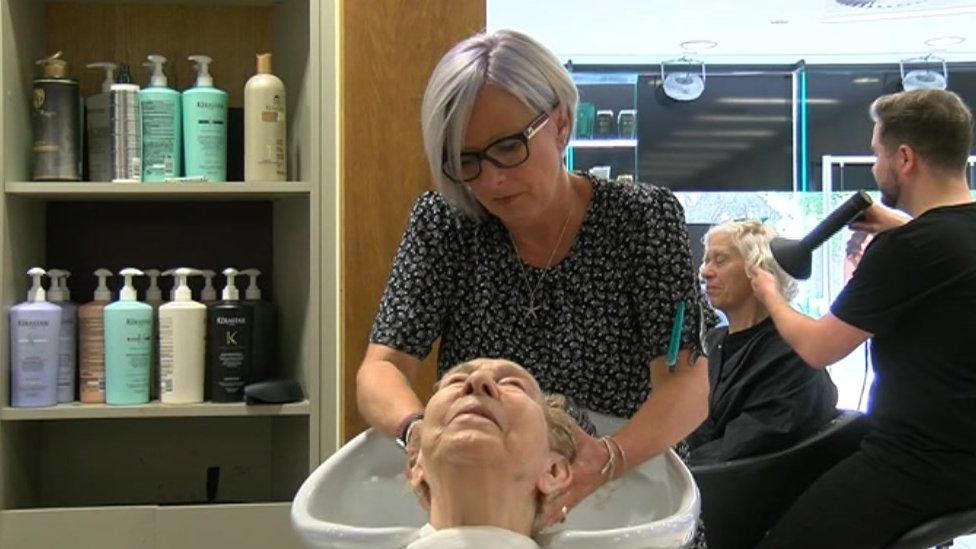
Becky Whitehouse said she had noticed fewer customers booking appointments
Becky Whitehouse who owns a nearby hair salon said she had found a two-year fixed deal, which is £400 per month more expensive than her current bill, but by paying closer attention to the budget she has still been able to give staff a pay rise.
"Their cost of living has gone up as well," she said.
"This is where I get cross, what are the government doing to help us with it?"
Ms Whitehouse said the salon has also seen fewer visits by customers, adding people were "quite flat and quite scared" about what the future holds.
The government said it was "already supporting businesses of all sizes by slashing fuel duty" and "introducing a 50% business rates relief for eligible high street businesses".
It added it had "put the brakes on bill increases by freezing the business rates multiplier - worth £4.6 billion over the next five years".

Follow BBC West Midlands on Facebook, external, Twitter, external and Instagram, external. Send your story ideas to: newsonline.westmidlands@bbc.co.uk, external
Related topics
- Published22 September 2022

- Published25 August 2022

- Published15 August 2022
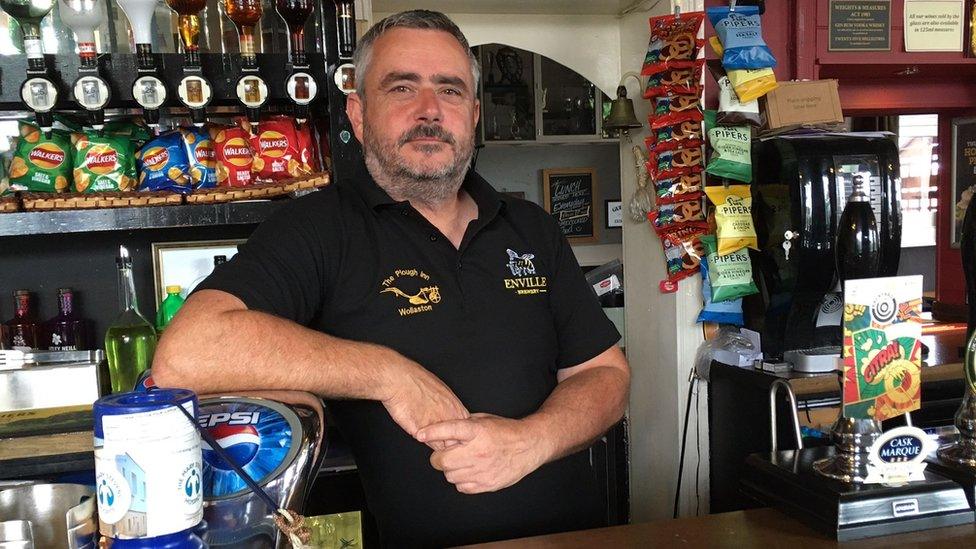
- Published13 April 2022
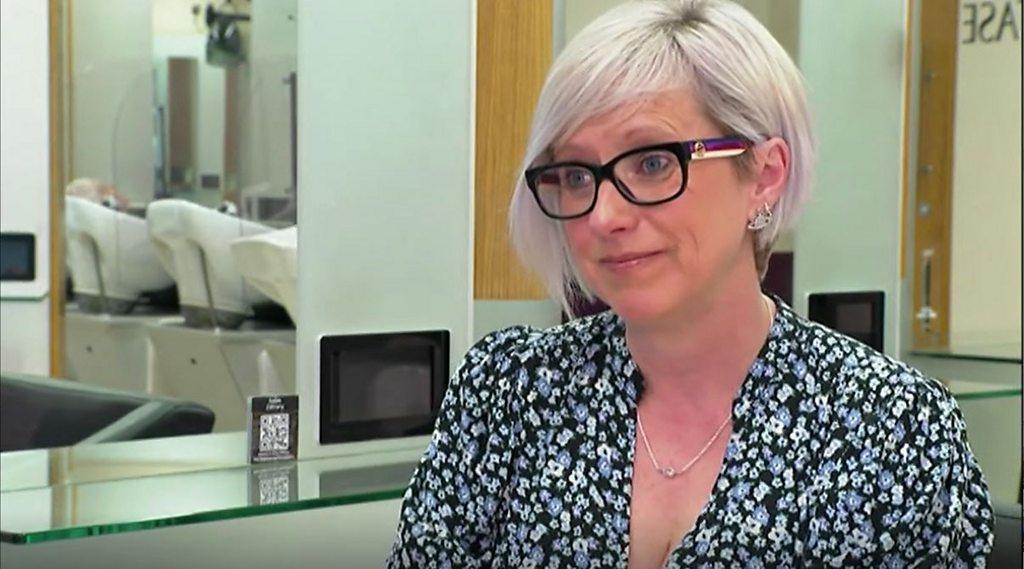
- Published10 June 2022
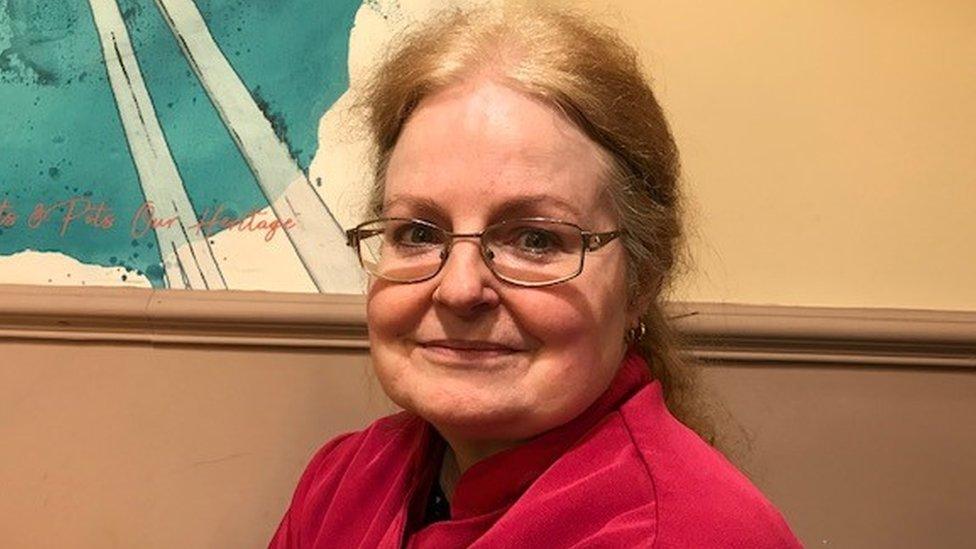
- Published29 March 2022
